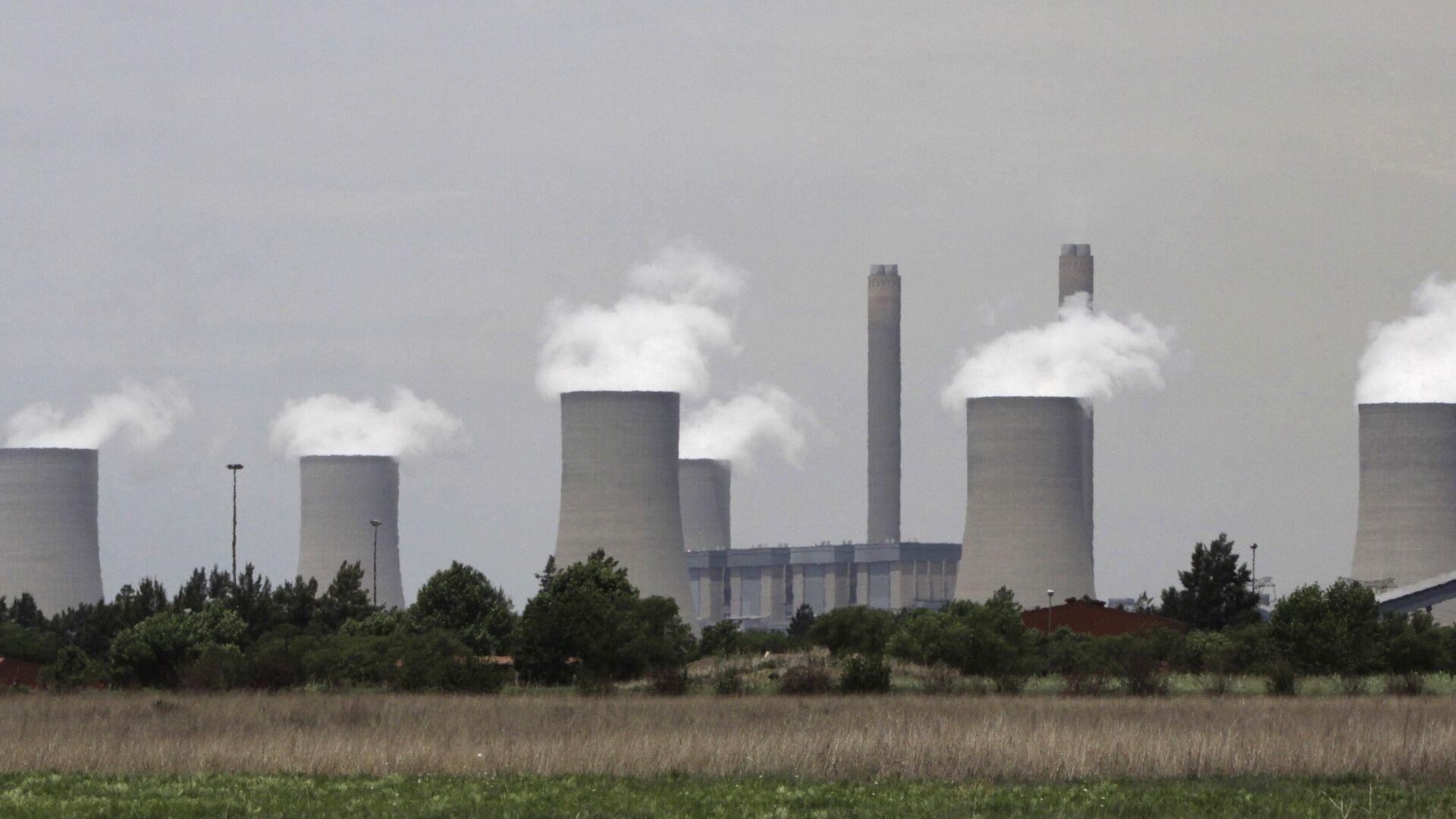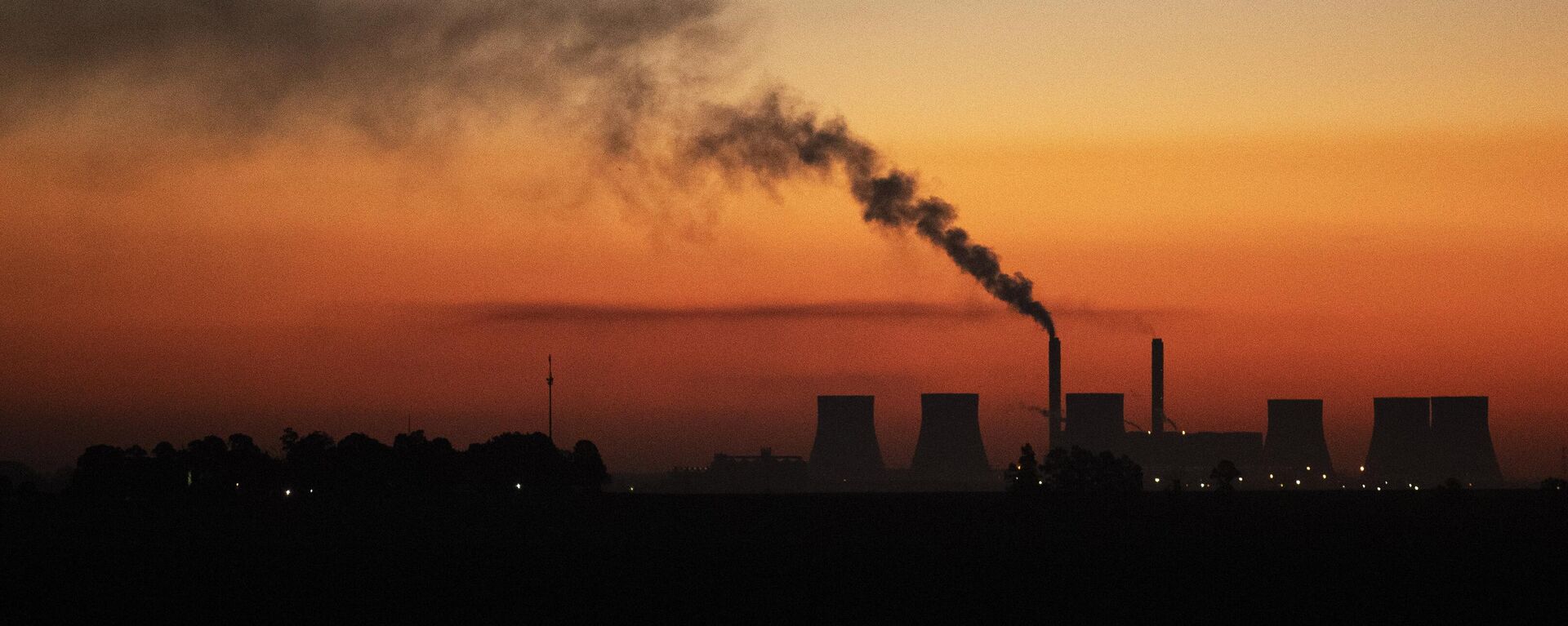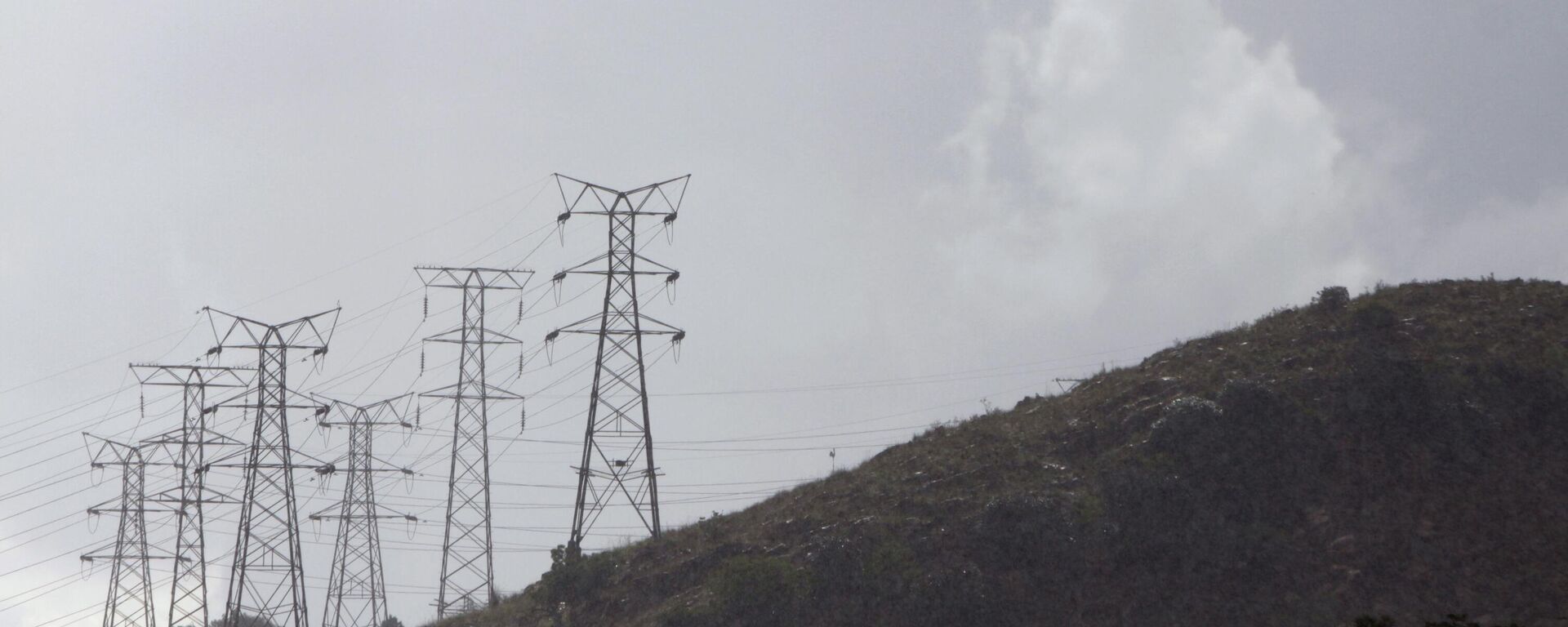https://en.sputniknews.africa/20230520/how-to-solve-south-africas-energy-crisis--the-part-russia-can-play-in-solving-it-expert-explains-1059364935.html
How to Solve South Africa's Energy Crisis & the Part Russia Can Play in Doing It: Activist Explains
How to Solve South Africa's Energy Crisis & the Part Russia Can Play in Doing It: Activist Explains
Sputnik Africa
As electricity outages hit record levels in South Africa, Russia can assist in the country's journey towards transforming its energy sector, South African nuclear activist Princy Mthombeni told Sputnik in an interview.
2023-05-20T13:14+0200
2023-05-20T13:14+0200
2023-05-20T17:56+0200
southern africa
south africa
russia-africa cooperation
russia
nuclear power plant (npp)
nuclear fuel
energy crisis
renewable energy
energy
eskom
https://cdn1.img.sputniknews.africa/img/07e7/04/0b/1058500558_274:0:3824:1997_1920x0_80_0_0_56444de45e5d6a412229a55b16daeecd.jpg
As power cuts reach record levels in South Africa, Russia can help the country to transform its energy sector, South African nuclear activist Princy Mthombeni told Sputnik in an interview.Mthombeni, head and founder at Africa4Nuclear, expressed her support for nuclear energy in South Africa as the way out of the ongoing energy crisis. She believes that nuclear power is required to meet the country's long-term, stable energy requirements, and wind and solar should provide intermittent energy for the medium to long term.As leading nuclear advocates in South Africa, Mthombeni says that she and her colleagues have made significant progress in convincing key stakeholders and citizens that nuclear power plants are essential to the country's successful and sustainable social and economic development. Some of these stakeholders, such as the country's Minister of Mineral Resources and Energy, Gwede Mantashe, and leaders of political parties such as the Economic Freedom Fighters (EFF) and Building One South Africa (BOSA), have publicly called for nuclear power programs.According to the activist, the EFF, in particular, has called on the government to consider partnerships with Moscow in nuclear construction programs.Mthombeni pointed out that Eskom, South Africa's state-owned power utility, has admitted that the Koeberg Nuclear Power Plant, one of the country's two nuclear reactors generating only 5% of South Africa's electricity, offers the cheapest electricity at 10 cents per unit among their power stations. She also argued that the establishment of nuclear power plants could bring back manufacturing and construction jobs during the building period as well as operational jobs for up to 80 years, including extra jobs on the decommissioning side. Moreover, there would be other major long-term benefits in terms of spin-offs onto other industries.Meanwhile, the activist pointed out that South Africa's economy is struggling, with government finances and households stretched to the limit and unemployment of 32.9%, one of the highest in the world.Mthombeni commented on the push by Western countries for South Africa to move away from coal amid the country's energy crisis. She believes that relying solely on intermittent renewable energy is "ridiculous and irresponsible" for a country facing energy challenges.On the issue of South African coal exports to Europe increasing, Mthombeni slammed Western countries, who are scrambling to secure alternatives to the Russian gas supply, for using South Africa as "a guinea pig for energy policies" that have not worked in developed Western nations.Although noting that African economies need energy to develop, Mthombeni stressed that aid from developed countries is welcome but should not be prescriptive as it would be seen as another form of neo-colonialism.Mthombeni also expressed her support for the government's decision to delay the shut-down of coal-fired power plants in a bid to resolve the country's electricity crisis. The South African activist warned that rushing into unreliable energy sources without considering the impact on the economy and society is not wise, as it could be detrimental in the short and long term.On the issue of security challenges and climate change, Mthombeni said she believes that Africa is facing a balancing act of accelerating development and economic growth, particularly in terms of energy provision. However, the energy sources being imposed on Africans under the guise of "climate change" may not offer solutions to the many socio-economic challenges that African nations face. This has led to many nations battling to deal with safety and security matters, with people struggling for survival and resorting to unlawful conduct such as collaborating with terrorists.She also highlighted the impact of climate change on food insecurity on the African continent. She noted that of the 1.2 billion living on the continent, 240 million Africans suffer from hunger and 418 million Africans lack access to basic drinking water services. Mthombeni argued that access to electricity is directly linked to improving living conditions and access to basic needs, which will, in turn, help reduce food insecurity. She emphasized the need for the African regions, such as the Southern African Development Community (SADC), to effectively share energy through interconnected grid networks. According to her, this would help the continent get to a point where they can share energy, just like other continents such as Europe.
https://en.sputniknews.africa/20230512/south-africa-needs-emergency-energy-amid-crisis-president-says-1059194669.html
https://en.sputniknews.africa/20230514/south-africas-eskom-yet-to-finalize-winter-load-shedding-plan-official-says-1059244547.html
southern africa
south africa
russia
Sputnik Africa
feedback@sputniknews.com
+74956456601
MIA „Rossiya Segodnya“
2023
Muhammad Nooh Osman
https://cdn1.img.sputniknews.africa/img/07e7/04/0a/1058467512_0:0:1280:1280_100x100_80_0_0_ec723833bcbfcaed2e21952965ad99e4.jpg
Muhammad Nooh Osman
https://cdn1.img.sputniknews.africa/img/07e7/04/0a/1058467512_0:0:1280:1280_100x100_80_0_0_ec723833bcbfcaed2e21952965ad99e4.jpg
News
en_EN
Sputnik Africa
feedback@sputniknews.com
+74956456601
MIA „Rossiya Segodnya“
Sputnik Africa
feedback@sputniknews.com
+74956456601
MIA „Rossiya Segodnya“
Muhammad Nooh Osman
https://cdn1.img.sputniknews.africa/img/07e7/04/0a/1058467512_0:0:1280:1280_100x100_80_0_0_ec723833bcbfcaed2e21952965ad99e4.jpg
how to solve south africa's energy crisis? how can russia help? why does south africa have an energy crisis? what can south africa do to increase its energy supply? how can we solve the problem of energy crisis? what is the solution to south africa's energy crisis? south africa, russia, nuclear, energy crisis, nuclear power, nuclear activist princy mthombeni, africa4nuclear
how to solve south africa's energy crisis? how can russia help? why does south africa have an energy crisis? what can south africa do to increase its energy supply? how can we solve the problem of energy crisis? what is the solution to south africa's energy crisis? south africa, russia, nuclear, energy crisis, nuclear power, nuclear activist princy mthombeni, africa4nuclear
How to Solve South Africa's Energy Crisis & the Part Russia Can Play in Doing It: Activist Explains
13:14 20.05.2023 (Updated: 17:56 20.05.2023) Muhammad Nooh Osman
Writer/Editor
South Africa is facing an energy crisis which is getting worse by the day. The country, which has long relied on coal-fired power, is struggling to meet its energy needs, resulting in rolling blackouts and energy rationing for households and businesses. The situation has greatly disrupted the country's economic growth.
As power cuts reach record levels in South Africa, Russia can help the country to transform its energy sector, South African nuclear activist Princy Mthombeni told Sputnik in an interview.
Mthombeni, head and founder at Africa4Nuclear, expressed her support for nuclear energy in South Africa as the way out of the
ongoing energy crisis. She believes that nuclear power is required to meet the country's long-term, stable energy requirements, and wind and solar should provide intermittent energy for the medium to long term.
As leading nuclear advocates in South Africa, Mthombeni says that she and her colleagues have made significant progress in convincing key stakeholders and citizens that nuclear power plants are essential to the country's successful and sustainable social and economic development. Some of these stakeholders, such as the country's Minister of Mineral Resources and Energy, Gwede Mantashe, and leaders of political parties such as the Economic Freedom Fighters (EFF) and Building One South Africa (BOSA), have publicly called for nuclear power programs.
According to the activist, the EFF, in particular, has called on the government to consider partnerships with Moscow in nuclear construction programs.
"Russia can help us intensify these stakeholder engagement initiatives to attract more people. Also, there has been discussions around repurposing old coal power plants with gas technology. Though I wish some of them would be repurposed with nuclear technology, I do encourage Russians also to consider the opportunity in other technologies such as gas," Mthombeni said. "Lastly, I would like to see Russian companies show visible commitment to initiatives that are designed to meet South Africa’s specific goals."
Mthombeni pointed out that Eskom, South Africa's state-owned power utility, has admitted that the Koeberg Nuclear Power Plant, one of the country's two nuclear reactors generating only 5% of South Africa's electricity, offers the cheapest electricity at 10 cents per unit among their power stations.
She also argued that the establishment of nuclear power plants could bring back manufacturing and construction jobs during the building period as well as operational jobs for up to 80 years, including extra jobs on the decommissioning side. Moreover, there would be other major long-term benefits in terms of spin-offs onto other industries.
Meanwhile, the activist pointed out that South Africa's economy is struggling, with government finances and households stretched to the limit and unemployment of 32.9%, one of the highest in the world.
Mthombeni commented on the push by Western countries for South Africa to move away from coal amid the country's energy crisis. She believes that relying solely on intermittent renewable energy is "ridiculous and irresponsible" for a country
facing energy challenges.
"In South Africa coal is not only dominant but also a bedrock on which energy access is built, providing affordable electricity to households, businesses, manufacturing facilities, mining, transportation, communications systems, and services throughout the economy," she argued. "Thus, a radical, ill-considered shift that fails to consider the suitability of the proposed energy source, especially when it comes to advancing industrialization and guaranteeing energy security in the interests of citizens, would lead to economic, social and eventually political instability."
On the issue of South African coal exports to Europe increasing, Mthombeni slammed Western countries, who are scrambling to secure alternatives to the Russian gas supply, for using South Africa as "a guinea pig for energy policies" that have not worked in developed Western nations.
"At the climate change conference (COP26) in 2021 which took place in Glasgow, United Kingdom, countries such as the US, UK, France, Germany and European Union 'pledged' $8.5Bln to South Africa to help the country move away from coal. Perhaps we should ask a question of whether South Africa is being used as a guinea pig for energy policies that have not worked in the very same nations," Mthombeni stated.
Although noting that African economies need energy to develop, Mthombeni stressed that aid from developed countries is welcome but should not be prescriptive as it would be seen as another form of neo-colonialism.
Mthombeni also expressed her support for the government's decision to delay the shut-down of coal-fired power plants in a bid to resolve the country's electricity crisis.
"Delaying the shut-down of coal-fired power plants is a wise decision. This will afford the country with an opportunity to do a thorough assessment of which technologies will be appropriate to replace these coal-fired power plants and also the pace and scaled in which this can be achieved," Mthombeni said.
The South African activist warned that rushing into unreliable energy sources without considering the impact on the economy and society is not wise, as it could be detrimental in the short and long term.
On the issue of security challenges and climate change, Mthombeni said she believes that Africa is facing a balancing act of accelerating development and economic growth, particularly in terms of energy provision. However, the energy sources being
imposed on Africans under the guise of "climate change" may not offer solutions to the many socio-economic challenges that African nations face. This has led to many nations battling to deal with safety and security matters, with people struggling for survival and resorting to unlawful conduct such as collaborating with terrorists.
She also highlighted the impact of climate change on food insecurity on the African continent. She noted that of the 1.2 billion living on the continent, 240 million Africans suffer from hunger and 418 million Africans lack access to basic drinking water services.
Mthombeni argued that access to electricity is directly linked to improving living conditions and access to basic needs, which will, in turn, help reduce food insecurity. She emphasized the need for the African regions, such as the Southern African Development Community (SADC), to effectively share energy through interconnected grid networks. According to her, this would help the continent get to a point where they can share energy, just like other continents such as Europe.
"The energy future I see for Africa is one that does not discriminate against other technologies. The future where there is an energy mix that includes nuclear is embraced. Where 'a prosperous Africa based on inclusive growth and sustainable development' is no longer an aspiration but a lifestyle," Mthombeni said.




